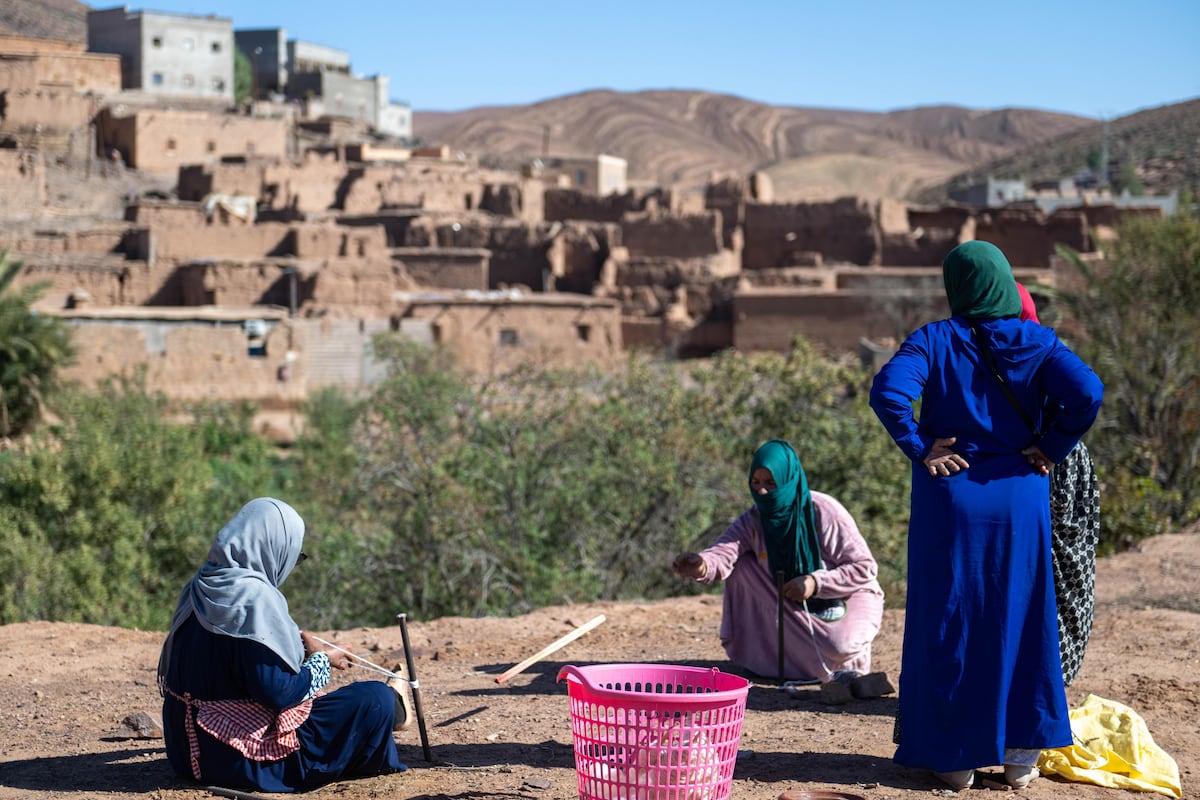Nine months after what was planned by King Mohamed VI himself, after having formally summoned the Government half a year earlier, Morocco announces a reform of the Family Code that is far from the aspirations of feminist organizations. On the other hand of the new Mudawana or personal statute, polygamy founded on Islamic law remains in force, although limited to the authorization of the first wife and her infertility. The face of the reform proclaims that weddings with girls will be formally prohibited, although judges may continue to authorize cases of marriages with minors. And to protect women’s right to inherit, restricted in application of sharia or Islamic law, it is guaranteed that the family home remains in the hands of the surviving spouse, usually the wife.
Mohamed VI has had to carry out arbitration again, this time entrusted to the opinion of the ulama or doctors of religion, to prevent tension between the conservative and Islamist sectors, opposed to the reform of the Family Code, and civil society. secularist, who demanded advances for women, threatened the stability of Morocco.
Following the work of the body in charge of the reform, made up of magistrates, ministers and representatives of civil society, the Government presented in public this Tuesday the main lines of the update of the current Family Code.
Two decades ago, a new Mudawana marked the first years of the reign of Mohamed VI with the recognition of rights for women, such as being able to request a divorce for themselves. Its effective application was, however, distorted by the conservative religious tradition of the Maghreb country. Furthermore, the presence of prime ministers from the Islamist Justice and Development Party at the head of the Government between 2011 and 2021 stopped short the demands of feminist groups, very active in the large cities of the coast.
On Monday afternoon, the monarch received the opinion of the ulama, to whom he entrusted the arduous task of fitting the tradition of Sharia, a legal source expressly included in the Constitution, with the citizen rights protected by the same fundamental law and by treaties. international agreements that bind the State of Morocco. The squaring of the circle has resulted in the maintenance of polygamy (up to four wives), although under conditions of almost impossible compliance.
Multiple marriage – between 2% and 4% of couples in rural areas, and sometimes covering up the foster care of widows without resources – will only be possible with the authorization of the first wife, who can now record her explicit veto on polygamy in wedding agreements. The only remaining avenue is medical recognition of the woman’s infertility. Feminist groups demanded its abolition. The Islamists demanded that Sharia continue to be observed without limitations.
The “exceptional objective justification” of polygamy, reads the legislative project that reaches the table of the Council of Ministers, “will be limited to the infertility of the first wife, or to an illness that prevents marital relations, or to other cases, which the “The judge will assess according to specific legal norms, with the same degree of objectivity and exception.”
As of the promulgation of the new Mudawana, which still has to be approved by the Executive and Parliament (in a process of endorsement of the monarch’s arbitration), the legal age for marriage will be raised from 16 to 18 years. . The exception to the rule is contemplated in the bill, in which it is lowered to 17 years, “framed by several conditions” appreciated by the courts. The average age in Moroccan society is around 26 years for women and 31 for men.
In 2023, 14,197 requests for judicial authorization for marriage with minors were submitted in Morocco. In 2022 there were 20,097. More than two-thirds of the applications were accepted, according to data from the Attorney General’s Office.
Among other planned reforms, in the absence of knowing the specific content of the new Mudawana, the Moroccan digital press highlighted this Tuesday the maintenance of custody of children by a divorced mother, even in the case of remarriage, which until now represented an impediment. The mother in charge of custody will also have legal guardianship of the children.
Without defining an overturn to the hereditary system of the Koranic tradition – which reduces by half the amount of assets bequeathed to daughters with respect to sons and which can even deprive women of all rights for the benefit of the father’s male relatives – , the announced Family Code offers some progress for Moroccans regarding the main economic asset of households. The family home will now be excluded from the inheritance and cannot be inherited by a person other than one of the two spouses in the event of the death of the other.
The Prime Minister, Aziz Ajanuch, limited himself this Tuesday to assuming “the high instructions” derived from the king’s approval announced the day before, the reports of the body that drafted the proposals for the revision of the Mudawana, and the theological opinion of the Council of Ulema, which includes a hundred amendments. Mohamed VI in turn entrusted Achanuch and his ministers with the mission of “communicating the news of the review to the public”, in accordance with the provisions of the Constitution.
The sovereign of the Alawite dynasty, who serves as religious leader as Commander of the Believers, has stressed through a statement from the royal palace that the reform “must be seen in a spirit of complementarity, without favoring one party.” [del matrimonio] to the detriment of another, while guaranteeing clear legal rules to avoid contradictory interpretations.”
“What God has forbidden”
“I cannot authorize what God has prohibited, but neither can I prevent what the Almighty has permitted.” This royal message launched in 2022 launched the second reform of the Mudawana, in which the monarch promoted the creation of a commission made up of jurists, theologians and representatives of the Administration to collect the initiatives of parties, NGOs and civil society. in general. The proposals were presented in September to the prime minister, who immediately forwarded them to the royal palace. Since then its content had remained secret, awaiting the opinion of the ulama.
The Islamists of the Justice and Development Party, in low times in Parliament, where they have fallen from 125 seats in 2021 to only 13, have raised the flag of opposition to the Mudawana reform in an attempt to regain the conservative and religious vote for the 2026 legislative elections.
Threats on networks against the “enemies of Islam”
Two dozen feminists, intellectuals and journalists have received serious threats through social networks in recent months, where they have been described as “enemies of Islam” for having shown themselves in favor of a broad reform of the Mudawana. They have been accused of promoting homosexuality, extramarital relationships and atheism. Among them is the French-Moroccan writer Leila Slimani, co-founder of the Moroccan Outlaws collective. Feminist associations demand that they stop following them. applying religious criteria from 14 centuries ago to women’s rights.







